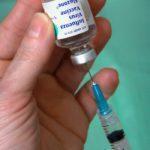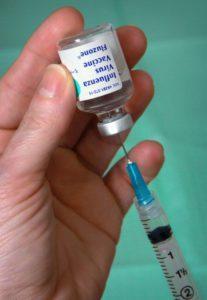Developing efficacious vaccines for highly diverse viruses such as influenza and HIV is very challenging. Despite the availability of the flu vaccine, annual vaccination is required in order to mount an immune responses to the influenza virus which undergoes mutations of immunodominant antigens to evade immune responses. Understanding B cell and Ab maturation post vaccination is essential for the design of vaccines that induce broad and durable (long lasting protection).
Matsude et al., examined “B cell expansion and evolution after vaccination with replication-competent flu vaccine expressing hemagglutinin (HA) H5 glycoprotein”. They studied both plasma (serum) HA-Ab levels as well as Abs generated from purified influenza-specific (HA) memory B cells isolated from PBMCs. This enabled researchers analyse the functional capacity of systemic Ab responses as well as changes in memory B cell maturation.
Researchers observed expansion of vaccine induced H5-specfic B cells more than 25 weeks post-vaccination even in the absence of vaccine replication. Demonstrating that a single dose of replication competent vaccine is sufficient to induce long-term B cell expansion. Some of the H5-specific B cells were also cross-reactive for the H1 HA antigen (which was not in the vaccine). Researchers further showed that Abs from B cells detected at later time points (30 weeks post vaccination) possessed higher neutralisation potency, as well as increased affinity and somatic hypermutations to HA H5 compared with Abs from B cells isolated at 4 weeks. However this Increase in neutralisation and antigen affinity with time was not observed against HA H1, despite Ab cross-reactivity, nor systemic H5-specific Abs.
In summary, Matsude et al., showed that vaccination with replication competent viral vaccine resulted in B cell maturation up to 6-12 months post vaccination. These findings have implications on timing of boosting of Ab responses, indicating that boosting at 2 months would be too early for some vaccines as selection for Abs with greater neutralisation and avidity may not have occurred. As a result boosting may not result in Abs with improved functional capacity and avidity.
Journal article: Matsude et al., 2019. Prolonged evolution of the memory B cell response induced by a replicating adenovirus-influenza H5 vaccine. Science Immunology

